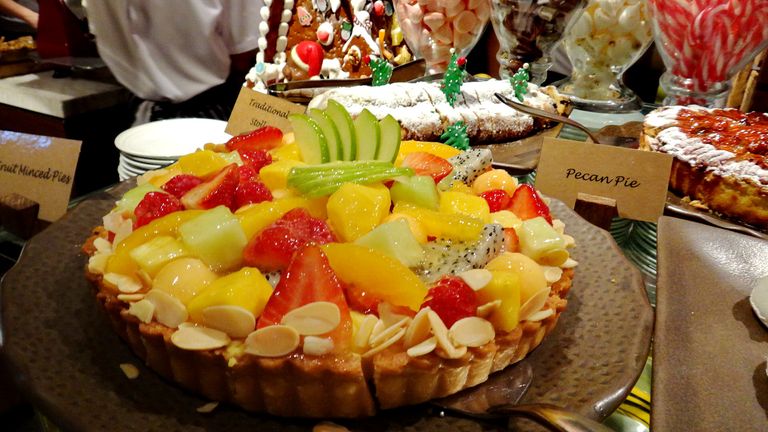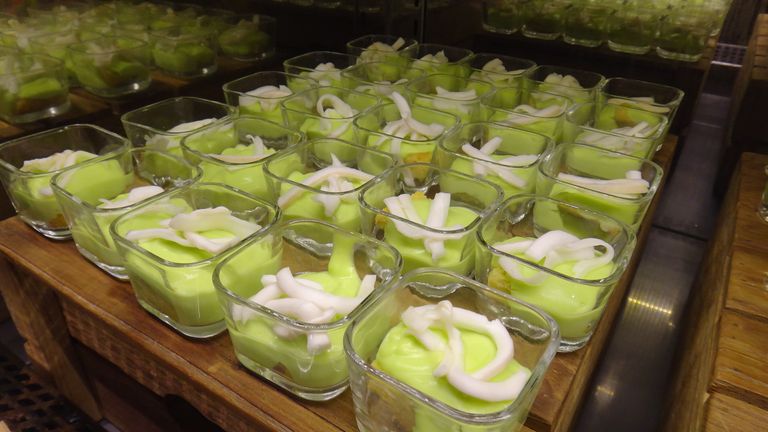Sweets and cakes are among life’s most delightful pleasures, evoking images of birthday parties, holiday celebrations, and comforting moments shared with loved ones. Their appeal is universal—whether it’s a rich slice of chocolate cake, a warm cinnamon roll, or a handful of colorful candies, these treats awaken the senses with their sweetness, textures, and flavors. While overindulgence in sugary foods can lead to health concerns, enjoying them in moderation offers not only sensory satisfaction but also psychological and social benefits. By maintaining balance, one can savor the sweetness without compromising well-being.

The Sensory Joy of Sweets
One of the most immediate pleasures of eating sweets and cakes is the sensory experience they provide. From the creamy richness of a cheesecake to the soft, airy layers of a sponge cake, the variety of textures and flavors in these treats can be deeply satisfying. Sweet foods activate the brain's reward system by releasing dopamine, a chemical associated with pleasure and enjoyment. This explains why, after a long day or a stressful situation, indulging in a small piece of cake or a sweet dessert can feel so comforting.
Moreover, sweets often evoke memories of happiness and nostalgia. Whether it's recalling childhood treats or the warmth of homemade cakes baked for special occasions, the act of eating something sweet can bring about a profound emotional connection. This sensory and emotional bond with sweets underscores their role as more than just food—they are experiences that touch on pleasure, memory, and comfort.
Psychological Benefits of Sweets
In moderation, sweets and cakes can contribute positively to mental health. Psychologically, small indulgences can serve as rewards, motivating people through periods of stress, hard work, or fatigue. Allowing oneself the occasional treat helps cultivate a healthy relationship with food, teaching balance rather than restriction or guilt. In fact, when sweets are treated as occasional pleasures rather than forbidden temptations, people are less likely to binge or overconsume. Moderation allows people to enjoy their favorite foods while remaining mindful of their health.
Beyond immediate satisfaction, sweets can also serve as mood boosters. Research suggests that sugar can provide a temporary lift in mood by increasing serotonin levels, the neurotransmitter responsible for feelings of well-being. While this is not an excuse for overconsumption, it explains why enjoying a treat can feel uplifting, especially when done thoughtfully and without excess.

Social and Cultural Enjoyment
Sweets and cakes are often integral to social gatherings and cultural celebrations, enhancing the joy of shared experiences. From weddings to birthday parties, cakes are iconic symbols of celebration, bringing people together in moments of collective happiness. The ritual of blowing out candles, cutting a cake, and sharing it with friends and family is ingrained in many cultures worldwide. These communal moments foster connection and create lasting memories, and sweets are often at the center of them.
Furthermore, sweets play a role in various cultural traditions and festivals. Whether it's the French tradition of enjoying macarons, the Japanese art of wagashi (delicate sweets served during tea ceremonies), or the indulgence of Turkish baklava during special occasions, sweets bring people together across cultures. Moderation here ensures that these traditions are enjoyed and celebrated without overindulgence.
Health Benefits of Moderation
Eating sweets in moderation also has its health benefits. When consumed mindfully, sweets can be part of a balanced diet, offering a small dose of quick energy, especially after physical activity or during moments of low blood sugar. The key is moderation—enjoying a treat without exceeding daily sugar intake recommendations. A small piece of dark chocolate, for example, is rich in antioxidants and has been linked to heart health benefits when consumed in limited amounts.
Moderation helps maintain a healthy balance between indulgence and nutrition. Rather than cutting out sweets entirely, which can lead to cravings and an unhealthy relationship with food, enjoying small portions can reduce the risk of overeating while still allowing for moments of joy. This balance also makes it easier to adhere to a healthy lifestyle in the long run, as it prevents feelings of deprivation.
Building a Healthy Relationship with Food
Part of the enjoyment of sweets comes from the act of treating oneself, but moderation ensures that these moments remain special rather than routine. By being mindful about when and why we indulge in sweets, we can cultivate a positive relationship with food—one that allows for enjoyment without guilt or regret. This mindful approach helps in appreciating each bite fully, turning the act of eating sweets into an intentional pleasure rather than an unconscious habit.
Additionally, moderation encourages people to seek higher-quality sweets, savoring artisanal or homemade cakes rather than overly processed, sugary snacks. This can lead to a deeper appreciation for the craftsmanship and ingredients that go into making high-quality desserts, further enhancing the experience.

Conclusion
Sweets and cakes are more than just sugary treats; they are a source of sensory pleasure, psychological comfort, and social connection. When enjoyed in moderation, they bring balance to our diets and enrich our lives in meaningful ways. Whether it's a celebration with loved ones or a small personal indulgence, the act of savoring a sweet treat can elevate moments and provide joy. Moderation allows for these indulgences to be enjoyed without guilt, ensuring that life remains sweet in both senses of the word.


























Good advice!